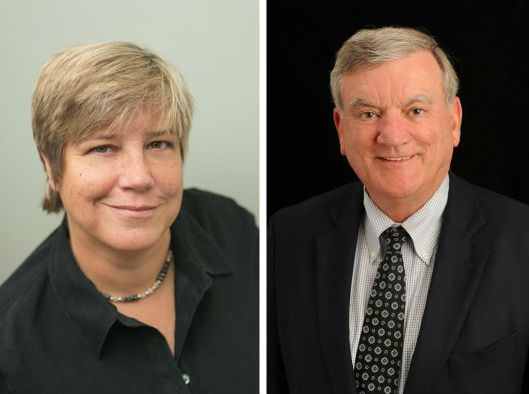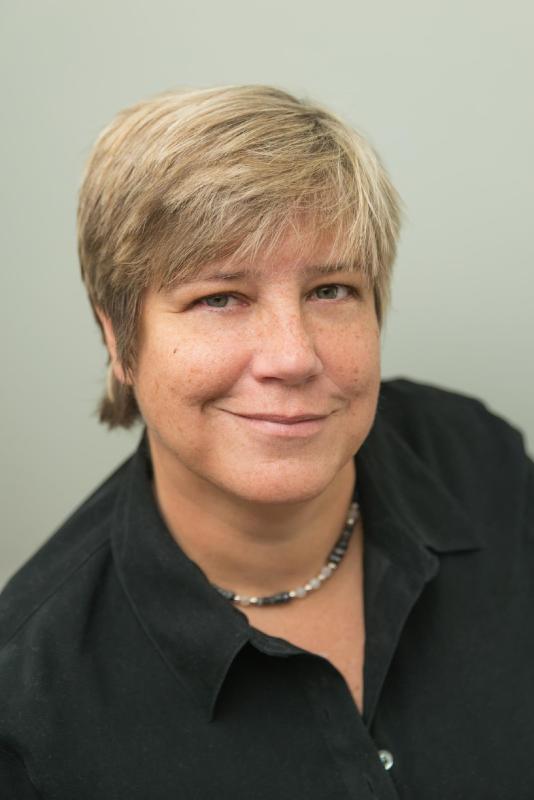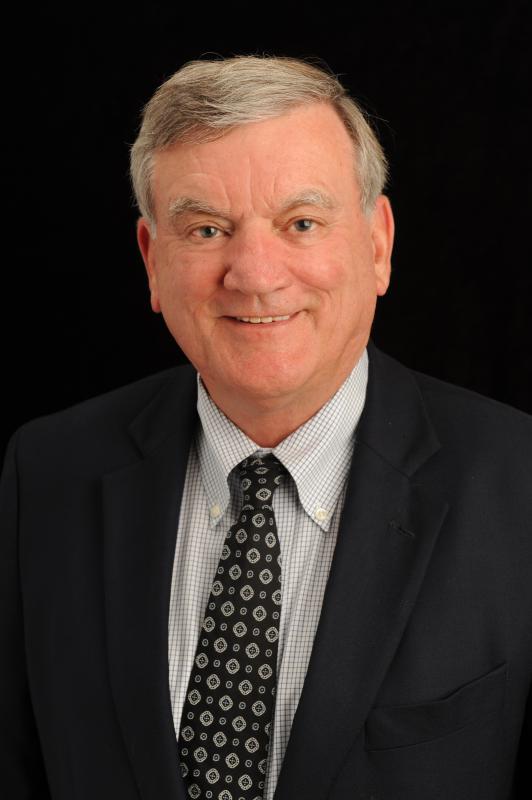This year, the Advocate is covering the Valley’s mayoral races a little differently. We’ve asked each candidate the same four questions, which we hope will provoke thoughtful and illuminating answers — with a little editing for length and clarity. This week we quizzed the candidates in the Greenfield mayoral election, current mayor William F. Martin and challenger Patty Morey Walker.
You have $100,000 free in the budget and you get to decide how it is spent. What department — or departments — would you give this money to?
Martin: We use a roster of priorities to develop an operating budget, and every department has sought best practice and efficiency in future budgets. We have been working to that goal. Currently, a $100,000 windfall would be directed to the Department of Public Works. That department has taken on an inordinate amount of new responsibilities, and despite several additional employees, represents a serious and critical infrastructure deficit that could be harmful to the community as a whole.
Walker: I am very interested in restoring the youth center and the position of Youth Commissioner, both of which were eliminated under the current administration. In light of the opioid epidemic and other drug issues in the area, kids these days face some serious temptations. I think getting more services in place for them would be helpful. We also have lost our skate park, and the Recreation Department could use some help. That office is staffed by just two people, and they do an incredible amount of work. I’m passionate about getting them more support.
What is your opinion of a flat tax rate, in which businesses would pay the same property taxes as residents?
Martin: A flat tax for business is probably not a good idea for our community. Greenfield has several multinational business entities that employ hundreds of residents and contribute greatly to our tax base. Though a wide range of proposals are under consideration at the national level, equal consideration for household tax modifications are required as well.
A flat tax for business is basically a fixed percentage on income. The debate surrounds the applicable deductions that might be allowed and whether the revenue lost will be replaced. It is also questioned whether the potential destabilization of business investment due to global economies will impact and influence the economy of local jobs and tax base.
Walker: The tax rate is currently flat in Greenfield. As of today, I feel that we are not vibrant enough. We don’t have enough economic development going on. I see this as a promotional phase for Greenfield — we want to bring in more business. That’s why I currently support a flat tax. Down the line, as we become more vibrant, it’s absolutely something I would want to revisit.
Can you identify a problem in the school system? How would you address it?
Martin: The most obvious and recognized “problem” is the current funding mechanism used to provide financial resources for the school department. We will continue to state our preferences to our representatives and state agencies for increased funding, fair distribution of resources, and fewer unfunded mandates and regulations. We have invested nearly $90 million in new construction and energy and technology upgrades. We have provided over $100 million to school department budgets over the last six years. We will continue to offer unique educational opportunities and introduce advanced and college courses to our students in a safe, secure, and pleasant environment. And will continue to seek certified professionals to teach and administer this fine school department.
Walker: I think Superintendent Jordana Harper, who has been on the job for about a year, deserves more support and encouragement. She has laid out a nice master plan for the next three years that includes improvements in curriculum, communication with parents, and training for teachers.
On the bad side, we’re still looking at $2 million a year going out in school choice. I would take a hard look at addressing that. I think I could bring new perspective to meetings with the School Committee, with no baggage, to make it more of a team effort. The mayor’s office and the School Committee need to work more closely together, with real collaborative effort.
What area or areas in town are in need of environmental improvements?
Martin: As an industrial area for nearly 300 years, Greenfield has endured the good, bad, and ugly of success. We have received millions of dollars in grant funds to clean contaminated sites of former industrial buildings. And we facilitate and accommodate businesses that are transforming their operations to a more environmentally friendly process.
As a designated “green” community, we have launched and guided several initiatives to protect natural resources. We are protecting our aquifers through zoning and land purchase, utilizing solar for electricity, creating the Greenfield Light & Power Program to aggregate 100 percent green electricity for all residents, maintaining a clean and reliable water source, managing recycling and compost programs, and modernizing our waste treatment.
Walker: On a positive note, we have several volunteer groups in town like Green in Greenfield, which has put together a long-term sustainability plan. It’s an amazing document. Some of those ideas have been implemented, but it will take a lot more effort all around.
The mayor and I differ greatly on environmental issues. I am very much against the pipeline, and he is for it. He has tried to push through a new biomass plant, which I am against. I support a ballot question that bans plastic bags, and he has not. Overall, there are a lot of good people in Greenfield volunteering to do good green work. I support their efforts and look to become more of a leader for them.•





